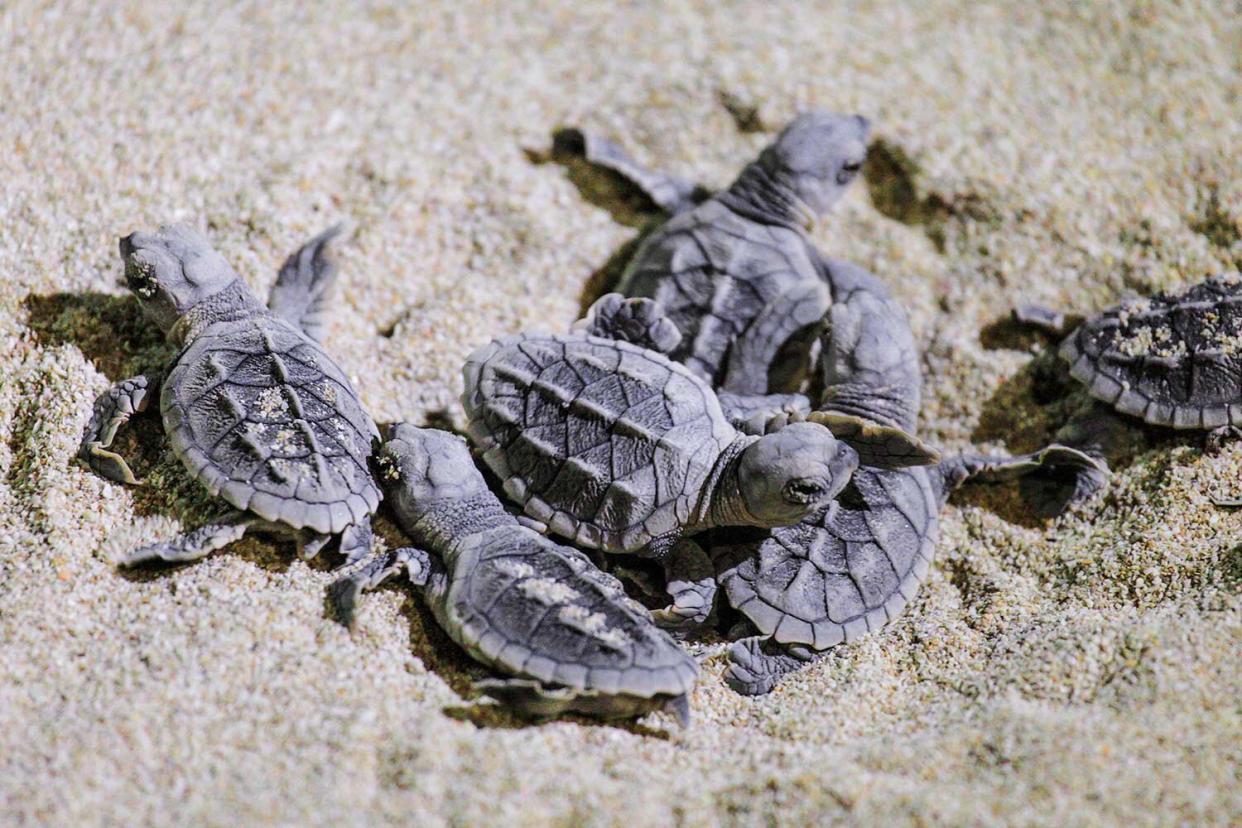Sea Turtles Born in Florida Are All Females Due to State's Rising Temperatures, Scientists Say

Getty
Only female sea turtles have hatched on Florida's coasts over the past four years, according to animal experts.
Bette Zirkelbach, manager of the Turtle Hospital in Marathon, Florida, says higher temperatures are to blame for the concerning trend.
"Scientists that are studying sea turtle hatchlings and eggs have found no boy sea turtles, so only female sea turtles for the past four years," Zirkelbach told Reuters.
The discovery is not limited to Florida. Zirkelbach told the news organization that researchers in Australia have also documented similar findings, with an estimated 99% of the country's turtles born female over the past few years.
Never miss a story — sign up for PEOPLE's free daily newsletter to stay up-to-date on the best of what PEOPLE has to offer, from juicy celebrity news to compelling human interest stories.
In turtles, sex is determined after fertilization, according to the National Oceanic and Atmospheric Administration (NOAA). The temperature of developing eggs is what determines whether the offspring hatch as males or females. The occurrence is known as temperature-dependent sex determination (TSD).
RELATED: 30 Cold-Stunned Sea Turtles Rescued From Cape Cod Sent to National Aquarium for Recovery
If a mother turtle's eggs incubate below 27.7° Celsius (81.86° Fahrenheit), the turtle hatchlings will be male, according to NOAA. But if the eggs incubate above 31° Celsius (88.8° Fahrenheit), the hatchlings will be female.
When temperatures fluctuate during incubation, a sea turtle nest might hatch a mix of males and females, according to the organization.
RELATED: Gisele Bündchen Rescues 'Beautiful' Stranded Sea Turtle Trapped in Fishing Net: Watch!
Sadly, the noted disparity between the sea turtle sexes correlates to an uncertain future for the species.
"Over the years, you're going to see a sharp decline in their population because we just don't have the genetic diversity," Melissa Rosales Rodriguez, a sea turtle keeper, told Reuters. "We don't have the male-to-female ratio needed in order to be able to have successful breeding sessions."

